When you think of a city of canals, chances are Venice comes to mind. And for good reason: There are 150 waterways criss-crossing this historic Italian City, including the UNESCO-designated Grand Canal. While Venice is undeniably one of the most beautiful cities in the world, it’s definitely not the only canal town out there. Check out these 10 charming canal cities that aren’t Venice.
Bruges, Belgium
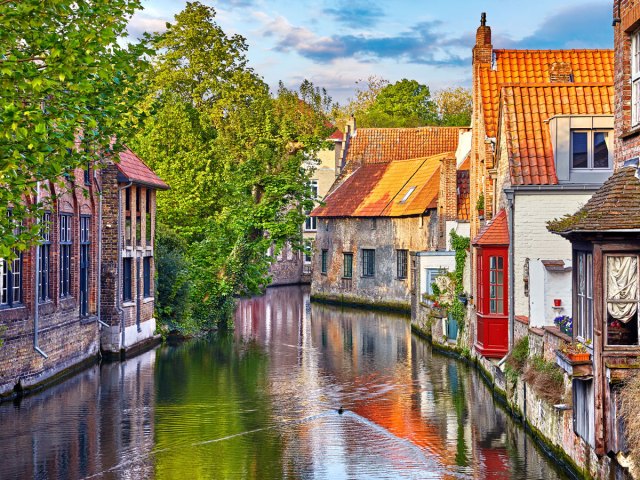
Located in the Flemish region of Belgium, Bruges was founded by the Vikings in the ninth century. Its location along the Zwin, a former tidal inlet that is now a nature reserve, linked it to the North Sea, which made Bruges an important international trading port during the Middle Ages. Today, this charming city features quaint cobblestone streets, gorgeous bridges, and gabled homes lining many of its canals, some of which date back to the 1100s.
A popular route for tourists is the leisurely 2-mile walk around Bruges’ inner canals, taking you past some of the city’s most romantic views and picturesque medieval streets. Walking around Bruges today, it’s hard to imagine that by the mid-1800s it was a city in decline — it was tourism in the 20th century that helped breathe new life into this historical gem.
Yanagawa, Japan
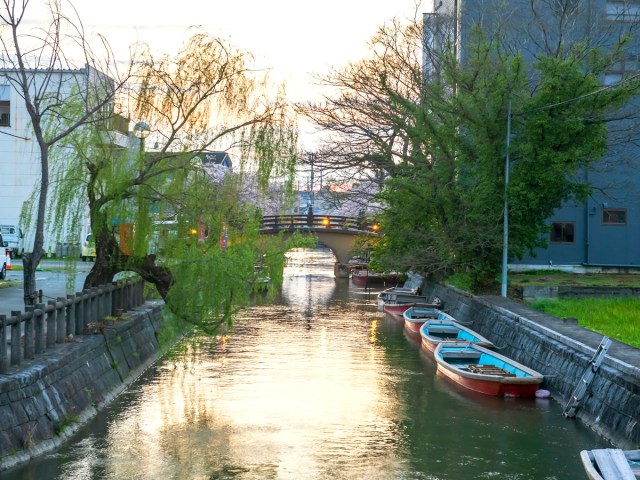
Yanagawa’s canals define this corner of Kyushu, the southwesternmost of Japan’s main islands — even the town’s manhole covers feature scenes depicting its waterways. To explore them, board a donkobune, a small flat-bottomed craft. Oarsmen expertly steer them using bamboo poles and dressed in traditional costume, from their conical hats to their rubber boots. They glide through the calm waters, punctuating the silence with folklore tales and centuries-old songs.
These canals were originally dug in the seventh and eighth centuries to provide irrigation for local agriculture and to create a defensive moat around the town’s castle. It’s worth stepping ashore to tour the Yanagawa Ohana, a residence built for the ruling Tachibana family in the 1700s. This imposing manor house is surrounded by an immaculate garden with a tranquil pond garden framed by black pines and stone lanterns.
Giethoorn, The Netherlands
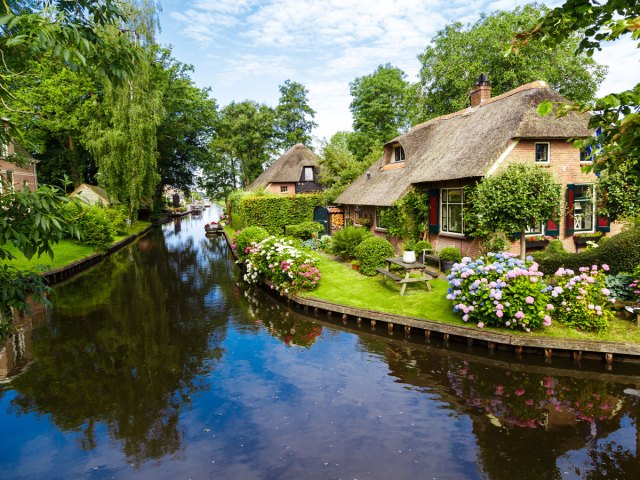
Next to Venice, Amsterdam is one of the most well-known canal cities in the world. If you’ve been to Amsterdam or are looking for something smaller and more charming, head to Giethoorn, which is less than a two-hour drive from Amsterdam. This primarily car-free spot — known for its beautiful canals and thatched-roof houses — is sometimes referred to as the “Dutch Venice.” There are lush footpaths and bike trails around Giethoorn that make it feel like the Dutch village popped out of the pages of a fairy tale.
Join a scheduled canal tour or rent one of the electric boats that seat two to three people and explore on your own. Remember to be respectful of people’s privacy as you are walking or boating around, and do not trespass onto people’s yards. Giethoorn is not a tourist village, it is a functioning town with around 2,600 year-round residents.
Bangkok, Thailand

A trip along Bangkok’s khlongs (canals) in a longtail boat offers a unique perspective on life in this sprawling Asian capital. The earliest channels were dug in the 1500s to improve navigation from the former capital, Ayutthaya, to the coast. Today, there are more than 1,600 khlongs.
Within the city of Bangkok, canals such as Khlong Bangkok Noi and Khlong Mon still crisscross the district of Thonburi, once a separate settlement. Such waterways are a far cry from the glass and steel high-rises, shopping malls, and traffic-choked boulevards that characterize the opposite side of the Chao Phraya River. In Thonburi, you’ll cruise by locals going about their daily business: doing laundry, tending to their plants, shopping for fresh produce, and preparing food. Stilted homes are a common sight; you’ll occasionally also pass a waterfront temple or shrine. Floating markets are frequently held on Bangkok’s canals, especially on weekends.
Xochimilco, Mexico
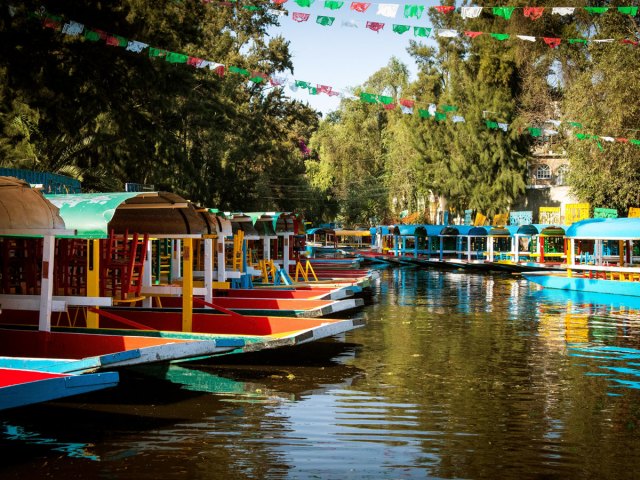
On the outskirts of Mexico City lies Xochimilco, which translates to “the place where flowers grow” in Spanish. However, many people also call the suburb the “Venice of the New World.” You won’t find elaborate Byzantine and Venetian Gothic-style architecture here, but you will see the remnants of a vast Aztecan water transport system. A series of human-made islands (known as “chinampas”) built for agricultural purposes create a canal network in a shallow lake.
Xochimilco was designated as an official UNESCO World Heritage Site in 1987 for its historical and cultural significance. Locals have been cruising the canal network, ferrying goods around in flat-bottom boats called trajineras, for centuries. Today, you can book festive, scenic tours on the brightly colored trajineras. Passing boat traffic includes serenading mariachis, vendors selling tacos and trinkets, and celebrating families — especially on Sundays.
Tigre, Argentina
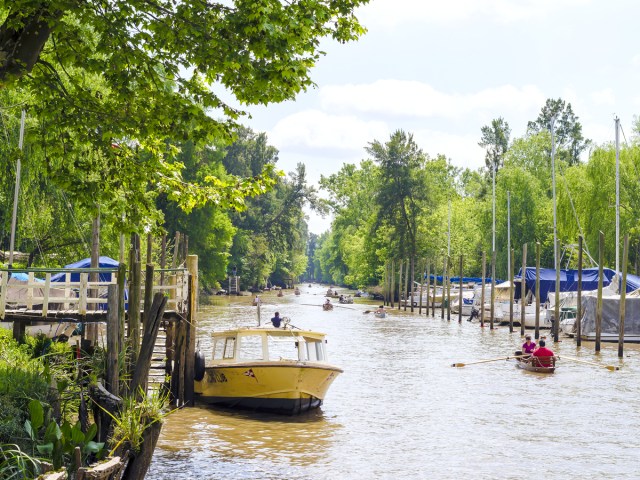
Only an hour by train from Buenos Aires, Tigre provides a refreshing alternative to the often hectic pace of the Argentine capital. Indeed, day trippers have been using Tigre as an escape from the city since the railway was built in the 19th century. Today, it’s still as popular as a retreat for locals (known as porteños) as it is a destination for international tourists.
Life in Tigre — situated amid the silt-laden Paraná River delta — takes place on riverbanks and beside canals. Stilted homes and aging mansions rise above the alluvial floodplain, attracting admiring glances from passing boat trippers. Visitors can rent kayaks or rowboats to get out into the wildlife-rich delta. On dry land, stroll along the Paseo Victoria; the market at the Puerto de Frutos and the Museo de Arte de Tigre are also must-see attractions.
Annecy, France
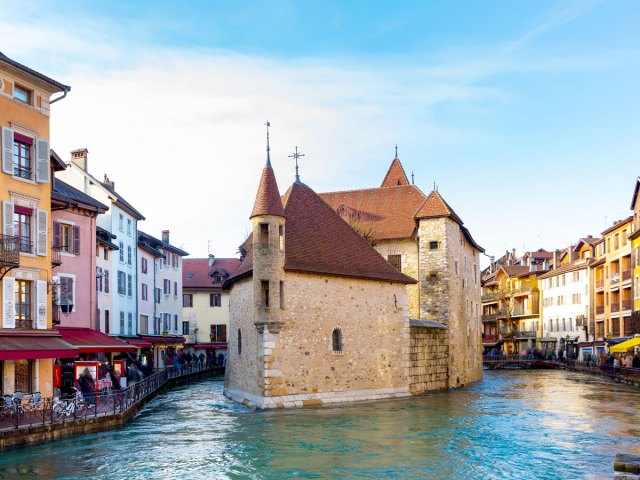
Scenic canals, historical buildings, and castles abound in Annecy. Often dubbed the “Venice of the Alps,” it raises the bar for other canal towns with its stunning turquoise lake and surrounding mountain scenery. Annecy is in the Haute-Savoie region near Lac d’Annecy, which is the third-largest lake in France and is bordered by the French Alps. Vieille Ville may have more canals than roadways, and each one is lined by beautiful pastel buildings. One of the most iconic photo spots includes the 12th-century Palais de l’Ile, located on a triangular turn of the main Canal du Thiou.
Zhouzhuang Water Town, China
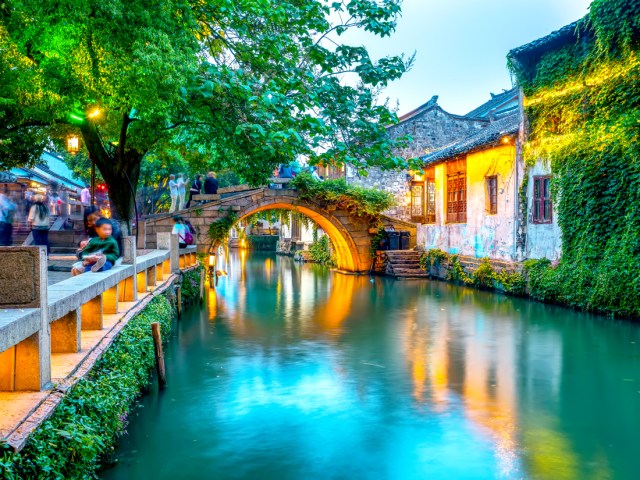
A number of canal towns can be found near the city of Suzhou, located west of Shanghai. Suzhou itself is located on the UNESCO-listed Jing-Hang Grand Canal, the world’s longest canal. Nearby, charming Zhouzhuang can trace its history back around 1,000 years. For centuries, it made use of the area’s abundant water supply to grow and trade crops such as rice, lotus root, and water chestnuts. A slew of ancient stone bridges, some of which survive today, connected people on either side of the waterways.
These historic properties and structures, many dating from the time of the Ming and Qing dynasties, are now the target of camera-toting visitors. Among those you should check out are the Twin Bridges (Shide and Yong’an), Jingye Tang (the Hall of Shen’s Residence), Yuyan Tang (Zhang House), and the Residence of Ye Chucang. Though it’s a popular day trip from Suzhou, you’ll need to set out early to stay ahead of the pack.
Alappuzha, India
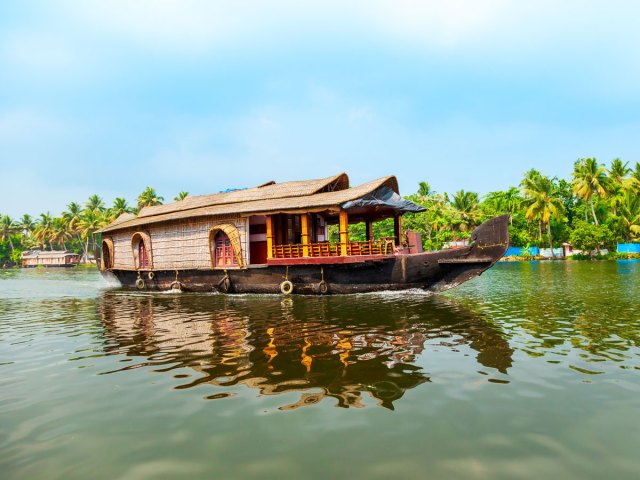
The city of Alappuzha is nestled deep in the southern Indian state of Kerala. A true “water city,” Alappuzha is famous for its network of interconnected backwater channels, boat races, beaches, and maritime commerce. The region is also known for its houseboat cruises that letvisitors explore the watery thoroughfares.
The biggest houseboats stick to the primary river “highways” that feature the heaviest traffic and most easily accessible tourism sites. However, the smaller vessels branch out and let you go beyond the basic routes to fully explore the incredible geography the region is known for.
Fort Lauderdale, Florida
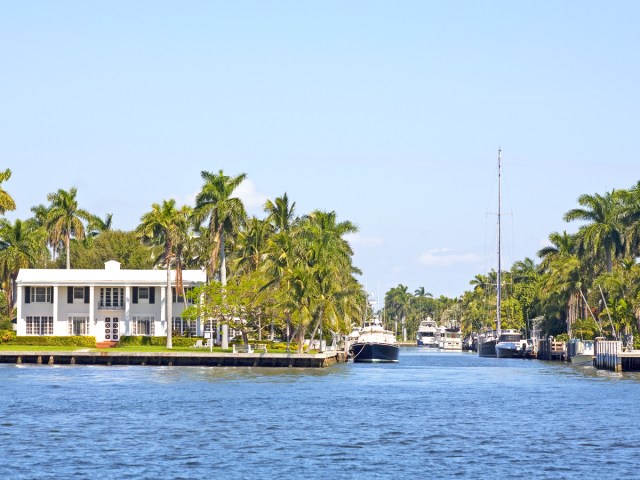
Nicknamed the “Venice of America,” Fort Lauderdale boasts approximately 165 miles of canals. In the early 1920s, Charles G. Rodes — a developer with a keen interest in the infrastructure and building techniques used in Venice, Italy — was contracted to dredge the canals and create the finger islands that would serve as the template for new real estate developments.
The prestigious neighborhood of Las Olas quickly took shape, followed soon after by Seven Isles and Rio Vista Isles, the work of Boston developer W. F. Morang. There were setbacks, notably a devastating hurricane in 1926 and the fallout from the 1929 economic crash. But the lure of waterfront living was irresistible — and today, Fort Lauderdale’s canals make this one of Florida’s most attractive cities.
More from our network
Daily Passport is part of Inbox Studio, an email-first media company. *Indicates a third-party property.
















